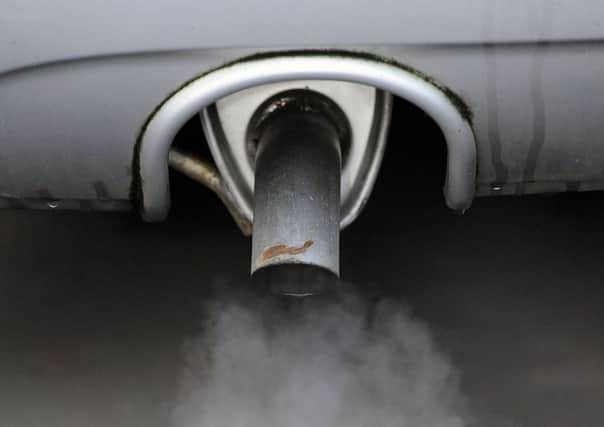Pollution causes misery for many people


Clean water. We’re so lucky in this country we can take it for granted. Turn on the tap and it’s there.
Just as well, given how much of it goes into our bodies each day. You could never imagine drinking water that was, for example, only 80 per cent clean.
Advertisement
Hide AdAdvertisement
Hide AdImagine if your water was poisoned with millions of particles of black dirt from diesel engines, toxic industrial chemicals and cancer-causing pollutants. You wouldn’t stand for it. And you’d be right.
But the air we breathe in Scotland has all those dangerous qualities and many more. Our towns and cities have levels of air pollution so high that they are, in fact, illegal.
And they’re causing serious health problems for thousands of Scots. We’ve all seen buses idling, engines running, outside schools. Or been caught in a traffic jam on the motorway with that eerie haze of exhaust fumes hanging over it. Maybe you’ve noticed a friend with asthma have bad days when pollution has featured in the news.
We now know how harmful air pollution can be. Over short periods, high concentrations of fumes, particulates and ozone can cause irritation to the respiratory tract, from the nose down to the small tubes in the lungs. This can cause coughing, wheeziness and/or breathlessness, particularly among people with a pre-existing lung condition.
Longer-term, exposure to high levels of pollution can be more harmful – studies have linked it with an increased risk of lung cancer and heart disease, a worsening of chronic conditions such as asthma and Chronic obstructive pulmonary disease (COPD), and with reduced lung development in children.
A recent report estimated that there are 29,000 premature deaths caused by air pollution in the UK every year. To put this into perspective, only around 1,500 deaths are caused by road traffic incidents.
There are many different causes of air pollution. A few recent spikes in particulate matter – tiny specks of dust one-twentieth the width of a human hair – have been in the news because they were associated with dust storms in the Sahara Desert.
Sometimes, the right combination of winds bring particles from elsewhere in the world to these islands, and then, particularly if we have a few still days, nothing stops them from hanging around in the air.
Advertisement
Hide AdAdvertisement
Hide AdThese “natural” spikes do happen, and they can be dangerous. But it’s important we don’t forget that a great deal of air pollution is caused by human beings.
Go back to that motorway, or those buses outside your local school. They’re giving off pollutants every minute, and despite efforts to bring these sources of pollution under control, these levels remain above the legal limits and threaten our health each and every day.
Indeed, these levels have been so high that the UK government has just been given a court order to put together a plan to bring them down by the end of the year.
It’s easy to think of air pollution as an issue for London and the smoggy south of England. But one of the cities singled out in the suit as particularly bad was Glasgow, and most Scottish towns and cities are also in breach of safe limits.
We can all play our part in reducing these potentially lethal emissions by cycling or walking as an alternative to using our cars whenever possible.
However, if we are to see real long-term, sustainable improvements, we need to see more consistent and coherent efforts by our governments. Our dirty air will not clean itself, and this issue is one that will, without the government’s intervention, continue to have an impact on current and future generations.
The Scottish Government now has a responsibility – legal, political, and moral – to put together a serious plan to cut pollution. A Low Emission Strategy is now being developed to do that.
We need to makes sure that the new rules will be strong enough to make our country’s air fit to breathe.
• Dr James Cant is head of charity the British Lung Foundation Scotland
SEE ALSO